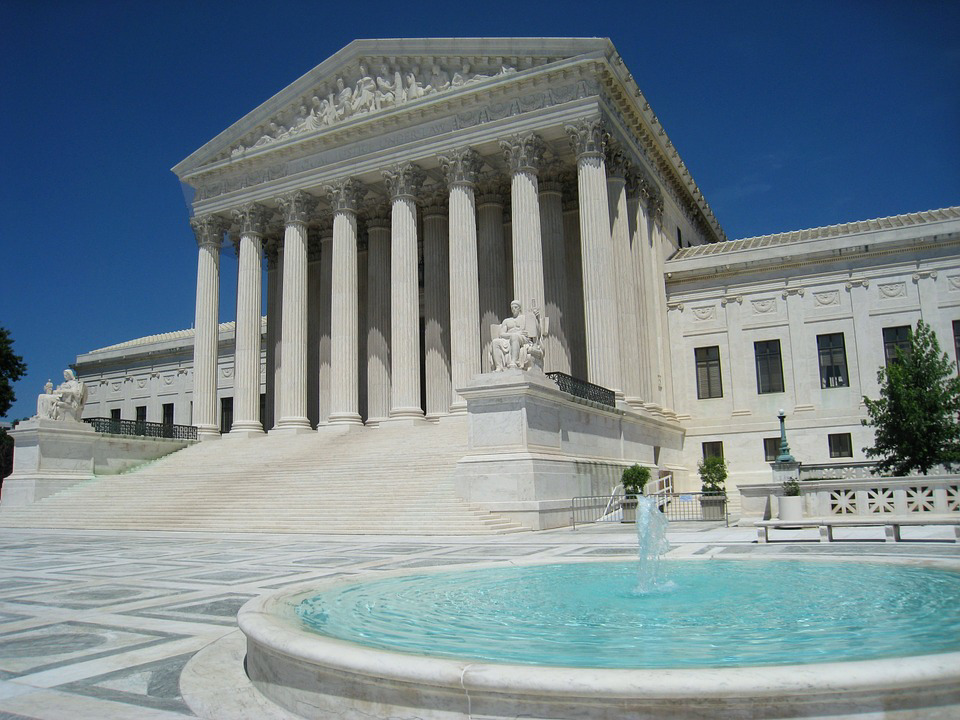
Supreme Court Reaches Major Takings Decision in Knick v. Township of Scott
August 29, 2019Photo Credit: Sunira Moses, CC BY-SA 3.0, via Wikimedia Commons
On June 21, the U.S. Supreme Court decided Knick v. Township of Scott, Pennsylvania. The decision has significant implications for state and local government agencies faced with regulatory takings claims under the Fifth Amendment. (SMW filed an amicus brief in the case on behalf of eight state and local government groups, including the National Governors Association, National League of Cities, National Association of Counties, and U.S. Conference of Mayors; the firm received the International Municipal Lawyers Association’s Amicus Service Award for our work on the brief.)
The Court considered a single issue: whether it should overrule a prior case that required plaintiffs claiming a taking to file suit in state rather than federal court. The prior case, Williamson County Regional Planning Commission v. Hamilton Bank, 473 U.S. 172 (1985), had held that the Takings Clause is not violated until a state or local government has both taken property and denied the property owner just compensation. As long as the state provided an adequate process for seeking compensation, such as a claim under the state constitution’s Just Compensation Clause, the Court had held, the owner had no claim for a federal constitutional violation until he or she followed that process and was denied compensation.
In Knick, the Supreme Court overruled the state-compensation requirement of Williamson County in a 5-4 decision written by the Chief Justice, over a scathing dissent by Justice Kagan. (The Court did not disturb Williamson County’s ripeness component, which provides that plaintiffs may challenge only final agency actions.) The Court held that a property owner may proceed directly to federal court once a public agency has reached a final decision that the property owner alleges to cause a taking of his or her property.
The obvious, primary impact of Knick is that many, perhaps most, takings claims will now be filed in federal court. (Plaintiffs had been trying for years to get around this requirement of Williamson County so they could file in federal court.) This has a variety of potential implications for local governments:
- For many local governments, it may mean higher litigation costs, as they will often have to defend suits in more distant federal courts.
- As Justice Kagan pointed out, takings claims, unlike most other constitutional claims, require courts to wade into complex questions of state property and land use law. There is likely to be procedural wrangling about whether federal courts should abstain to allow state courts to address those state law issues.
- In some cases, a federal court may be a more favorable venue for local governments. Federal courts have in the past shown considerable hostility to claims challenging land use regulation.
Helpfully, the Court’s opinion reiterates several times that the proper remedy for an alleged taking is payment of compensation, not injunctive relief. Absent that reassurance, the Court’s rationale might have suggested that property owners could seek to enjoin or invalidate zoning or other land use regulation they view as burdensome. The Court thus preserved the longstanding principle that, because of the eminent domain power, government takings of property are not improper—only uncompensated takings are improper. Knick implicitly reaffirms that governments have wide latitude to regulate the use of property in the public interest, but in the rare case in which a regulation has an extreme impact on the value of a property, the government must pay for it.
A final question is whether the Knick Court’s willingness to overrule settled precedent means that more takings and other constitutional precedents that have been generally deferential to state and local economic regulation are at risk. For the past 20 or so years, the Court had seemed generally skeptical of takings claims, with all but one or two decisions favoring public agencies. That trend may be at an end. At the least, we expect an increase in takings litigation, as plaintiffs test the waters of the new Court majority and the lower federal courts, which had long been off limits to them.
For more information, contact SMW attorney Matt Zinn.
This article is intended for information purposes only and is not legal advice. This article is not intended to be a source of solicitation. This article is intended, but is not promised or guaranteed, to be correct, complete, and up-to-date. This article does not constitute a guarantee, warranty, or prediction regarding the outcome of any legal matter. Readers should not act on the information provided in this article without seeking professional legal counsel.